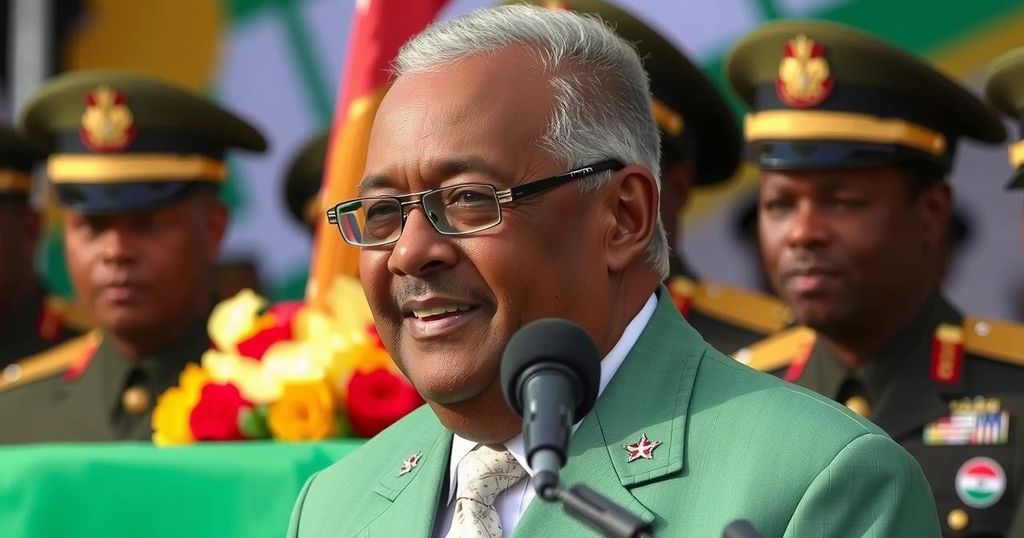Desi Bouterse, Suriname’s ex-dictator, will be cremated on Saturday following his death due to liver failure at age 79. His party will host remembrance events, but there will be no state funeral, although flags will fly at half-mast. Bouterse’s political history includes two coups and legal ramifications for atrocities during his tenure, leaving a contentious legacy.
Desi Bouterse, the former dictator of Suriname who had a controversial political career marked by two coups and a conviction for human rights abuses, will be cremated this Saturday. Announced by his political party, the National Democratic Party, this decision excludes a state funeral despite the significance of his position as a former head of state. Bouterse passed away from complications related to liver failure at the age of 79 last week, with his death reported to have occurred around December 23 or 24.
In accordance with Surinamese customs, commemorative gatherings involving singing and prayers will take place at the party’s headquarters prior to the cremation. The party’s spokesman, Ricardo Panka, emphasized the importance of remembrance, stating, “We invite family, friends, party members and all those involved to jointly reflect on his life and his contribution to our nation.” On the day of cremation, government buildings, including the presidential palace, will display flags at half-mast.
Bouterse’s rise to power began in 1980 when he led a coup as an army sergeant major, five years post-Suriname’s independence from Dutch colonial rule. His leadership witnessed continued turmoil, leading to his ousting due to international critique before staging a second coup in 1990. After a year in exile, he was elected president in 2010 and led for a decade until his recent death. In December 2023, Bouterse lost an appeal regarding a 20-year prison sentence for the extrajudicial killings of political adversaries in 1982, leaving him in hiding until his demise. His unexpected death and the subsequent circulation of his autopsy results sparked concerns over privacy violations voiced by his family and party.
Desi Bouterse’s tenure as a leader of Suriname is steeped in a complex history marked by military coups, authoritarian governance, and human rights violations. After Suriname gained independence from the Netherlands in 1975, Bouterse’s first coup in 1980 resulted in significant political upheaval. His rule, characterized by unrest and repression, continued until international pressure led to his resignation. His return to power in a second coup further complicated his legacy. In later years, Bouterse faced legal challenges regarding his past actions, particularly the infamous 1982 political assassinations, culminating in a sentence that he was appealing before his passing. His death has reignited discussions about his controversial rule and its ramifications for Suriname’s democracy.
In summary, Desi Bouterse’s cremation will be observed with significant cultural practices in Suriname while remaining a subject of national controversy. Despite being a pivotal figure in Surinamese history, his legacy is marred by human rights violations and legal troubles. His passing, coupled with the criticisms regarding the handling of sensitive personal information posthumously, reflects the complicated relationship between the nation’s history and its contemporary political dynamics. The tributes organized by his party and the half-mast flags serve as a reminder of the divisive sentiments surrounding his leadership and its long-lasting effects on the country.
Original Source: www.barrons.com






